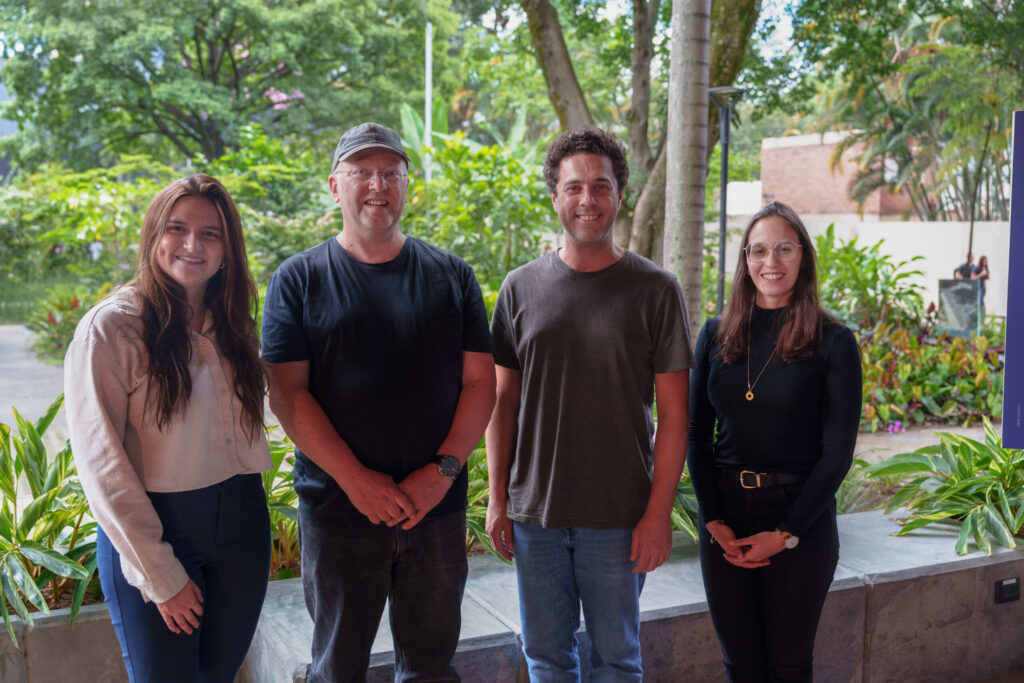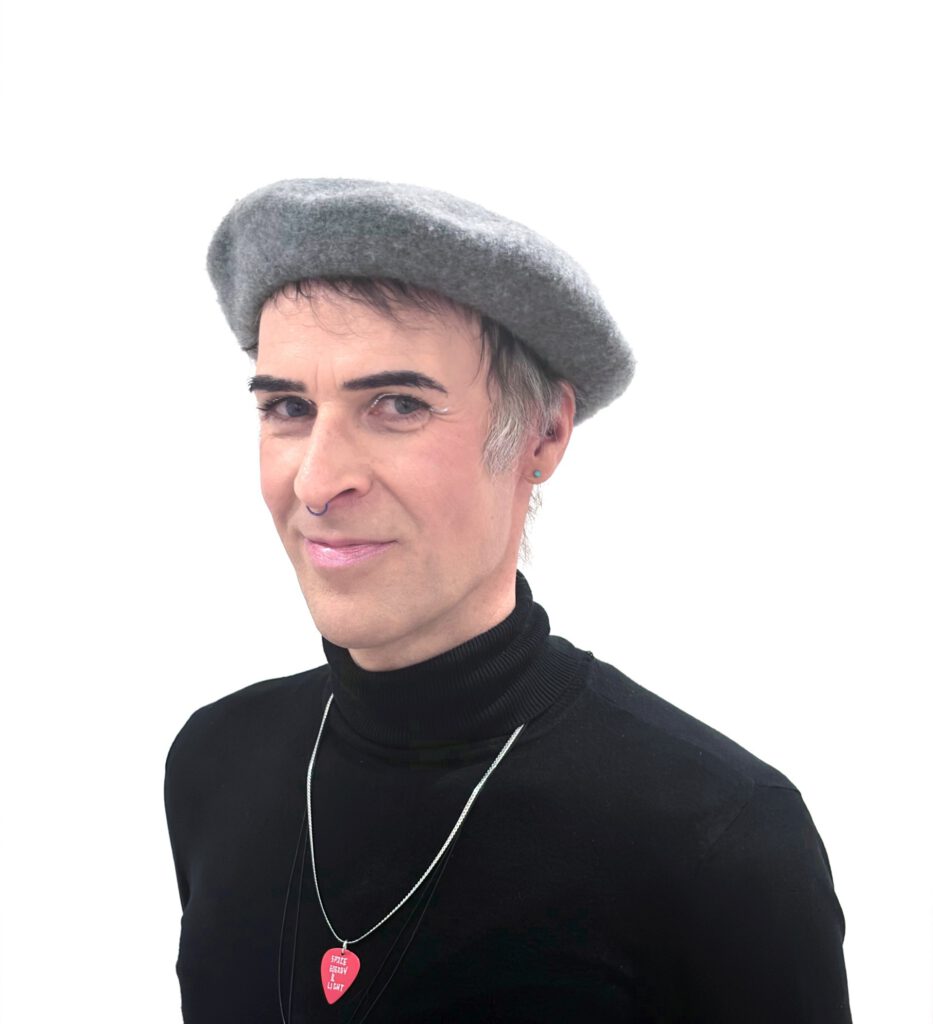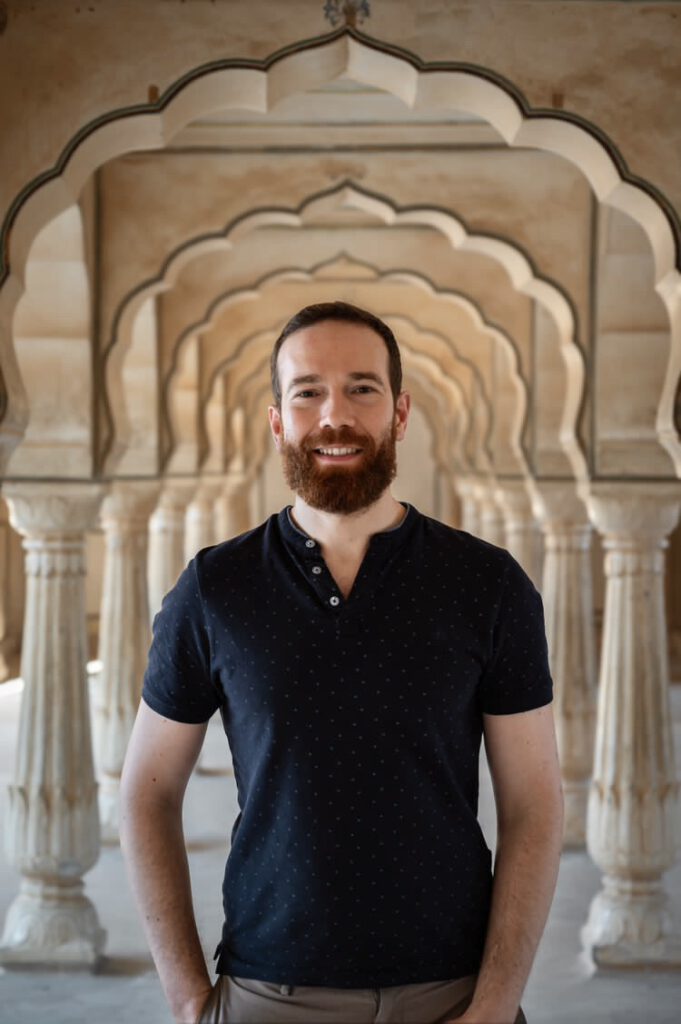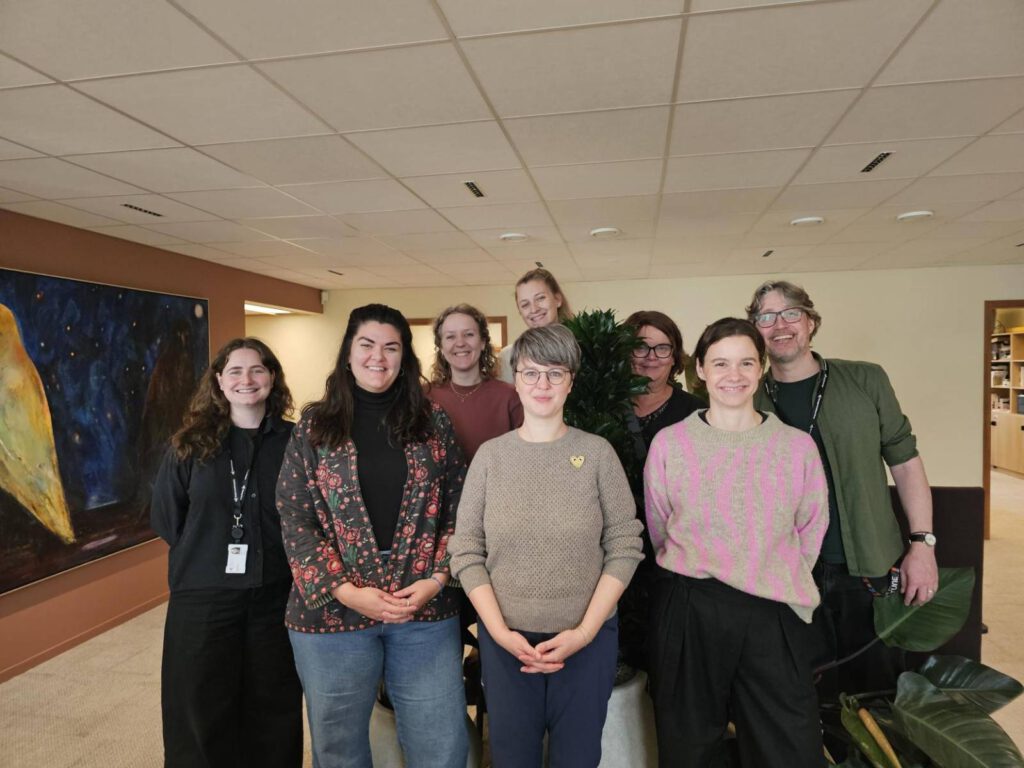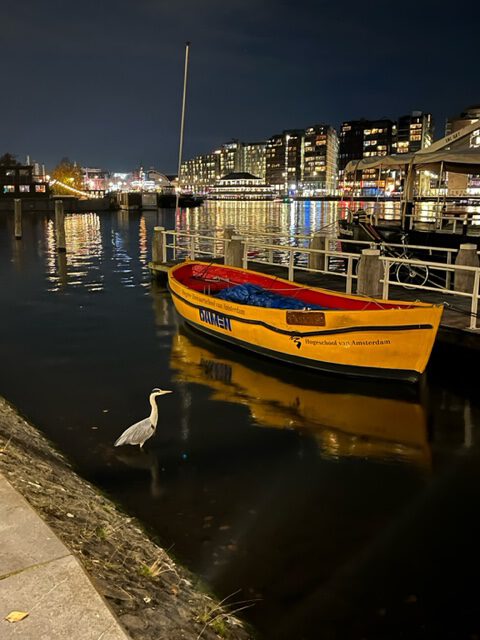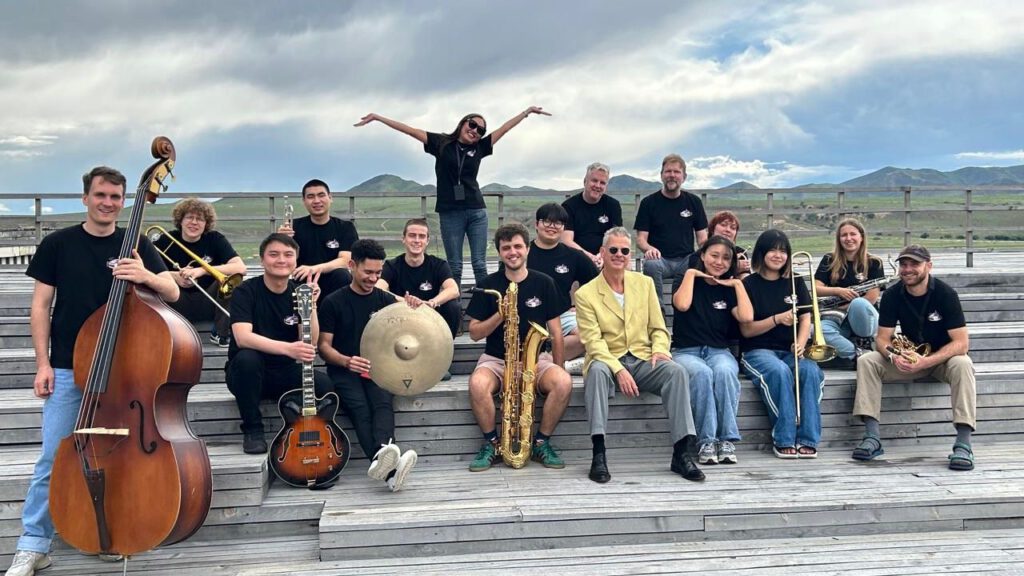Performing, travelling and teaching in India
Sharing My Passion For Music
Introduction by Marialena Fernandes*
Three cities (Bangalore, Mangalore, and Goa) that through 400 years of Portuguese influence are relatively familiar with European music. The people who live there attempt to come to terms with the thousand-year-old culture, interrupted by 450 years of European culture, and they are highly musical and are willing and able to take any melody and sing it back. Playing and teaching as a form of outreach, in orphanages and schools for the blind, as well as playing football with street children, is at the centre of this project!
I am especially happy that following the completion of my dissertation in 2013, I was able to launch the “Quest for Passion” project, and that every February since then I have taken various musicians from the mdw with me and included them in dialogue and interaction with the teachers and students there, as well as with parents and music enthusiasts.
In the fifth year – in February 2019 – I observed that my efforts were beginning to pay off and that the Indian partners are quite impressed. For me, this means: continuing my work, giving and sharing the gift of music, and gathering experiences.
* Marialena Fernandes teaches in the Joseph Haydn Department of Chamber Music and Contemporary Music. In February 2019, she and mdw students Amina Vámosi and Ieva Pranskute toured India, giving workshops and concerts all across the country.
Impressions and photos by Ieva Pranskute:
I am very happy to have had an opportunity to share my passions in India. A big thank you to Prof. Marialena Fernandes, a wonderful and passionate person full of love for music, who invited me to this extraordinary musical journey in India!
I was dreaming about it already long time and my dream came true. I had so many different beautiful experiences! Already from the beginning when I came to Bangalore I had a chance to interact with music school teachers and students.
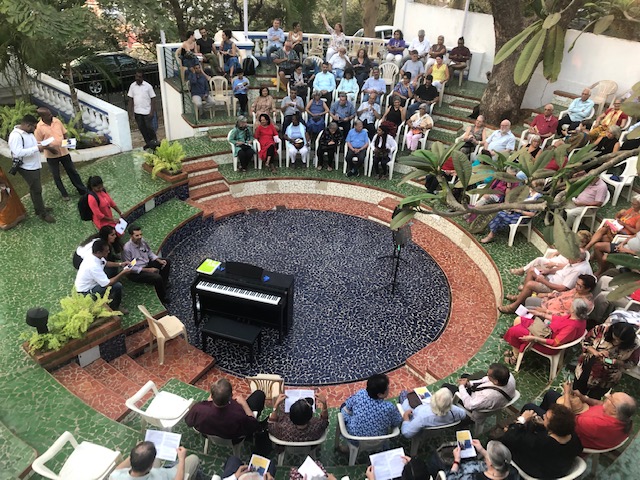
My student colleague Amina Vámosi and I were invited to join the orchestra and play a couple of pieces together. That is how our first musical touch has started.
Musicians in the orchestra were very excited, although a bit shy playing together. They were asking how does it sound, what do we think…
I was ready to share some suggestions, as much knowledge as possible which could help to answer their questions.
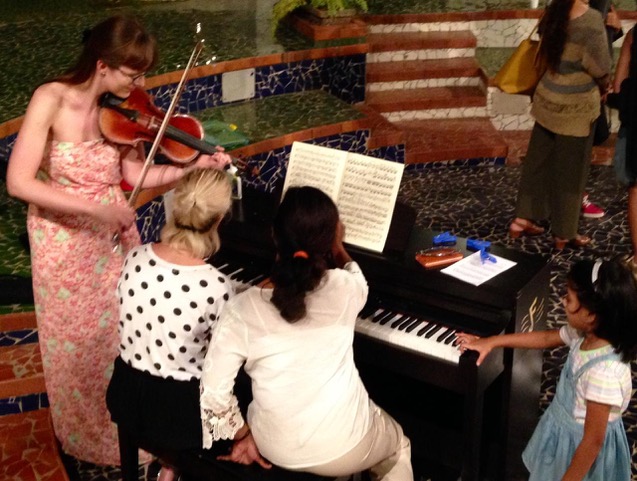
I realized that the biggest problem a musician has to face is the technique of playing violin. Already during my first lesson that I gave to a pupil, I was quite surprised. She didn’t have any proper basics even though she was playing the violin for seven years. After that lesson I was wondering about the teachers. Do they have the right body posture, holding the violin and the bow correctly? I was quite sad seeing the reality. But I knew the least I can do is guiding the pupil into the right direction.
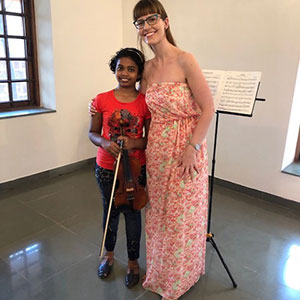
So the next day I had a workshop with some children. Since there were some teachers listening, I tried to pay attention explaining how the violin functions, how we should hold the violin and the bow and how the kids should stand and perform. Each child had something prepared and wanted to play, showing what they learned. Just what I realized: I should probably stay longer in India to be able to really take care of their development. Overly active children really need teachers with good eyes and ears.
After the workshop the teachers came to me with some questions like how do I maintain my violin or how could they make children interested in playing together or in a orchestra.
I brought some literature by R. Kreutzer and O. Ševčik, which is full of technical exercises that helped me very much in my time of studying the violin. I carefully explained the techniques and thought them how to practice them best. The teachers were very happy about it.
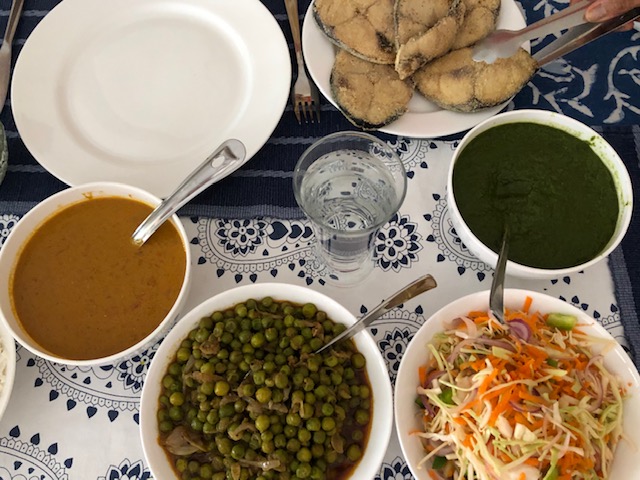
At my next workshop at Bangalore music school, I realized that the instruments some kids were using were in a very bad condition. Some bows were glued with sellotape! It reminded me of instruments used in the Soviet Union where only a couple of violin and bow makers existed. I even tried to fix some violin bridges and some pegs and tried to explain how to clean the instruments. The most surprising thing was that the teachers themselves didn’t maintain their violins. Probably nobody explained why it is necessary.
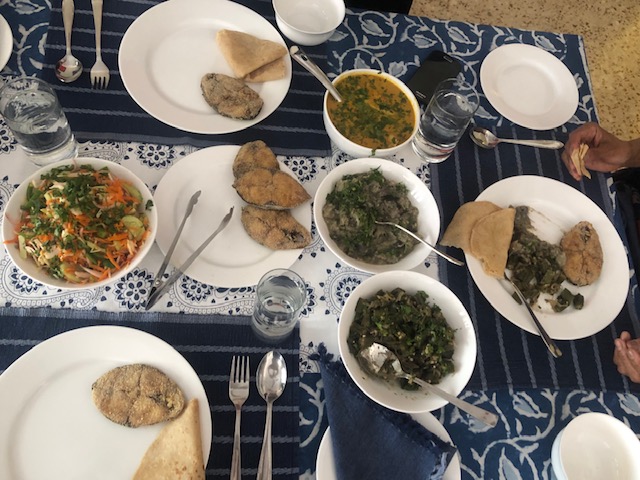
The girl I was teaching in Bangalore really liked the information I gave her and tried to implement it into her playing. She could hear and notice the sound differences and comfort in playing by herself whenever she would follow my tips.
I hope she is not giving up 🙂 It is not easy to change something major when you’re used to do that particular thing for so many years! But you can do everything with big effort – this is what I kept saying to her.
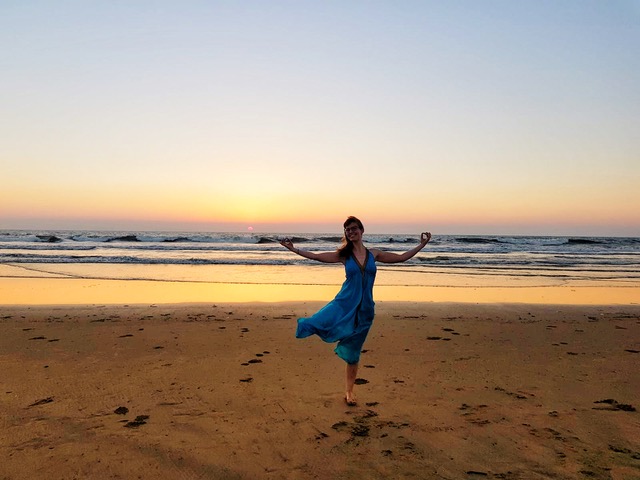
The next very interesting workshop we had was at Christ University, Bangalore where people actually studied music. When we came to the hall there were all kinds of instrumentalists except violinists and we exchanged some musical ideas. After the university’s Brass band played, Amina started to teach them, giving some tips. Students seemed to me very scared and shy. The teacher who was leading the Band was like a dictator, saying one! two! one! two! like in the military. I didn’t like that way of approaching music. After the workshop a bunch of pupils came to me, asked me questions about my musical life and shared their own experiences. They were so warm and open! Some even asked about possibilities to study in Vienna 🙂
I think that only through love for music we can share this feeling to others, not in some militaristic, forcing way.
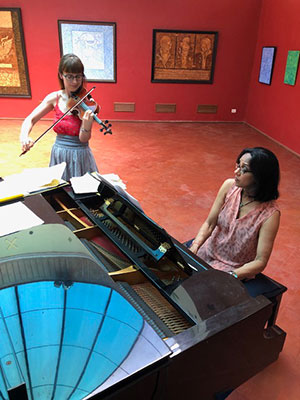
In Goa I had another amazing experience sharing my thoughts about one of my biggest passions: chamber music. In Sunaparanta art center we had an open workshop with live interaction with our audience. It was very interesting to see how the audience was getting excited about us making music. Chamber music was originally written to be played at home in a smaller room (or “chamber”) where small groups would perform as entertainment for guests. So we took some pieces of W. A. Mozart and tried to make some chamber music with the audience. After it we could analyze and explain what is important and necessary in playing chamber music: listening, breathing and thinking.
Are you a mdw student and interested in spending a semester or year at one of our partner institutions?

